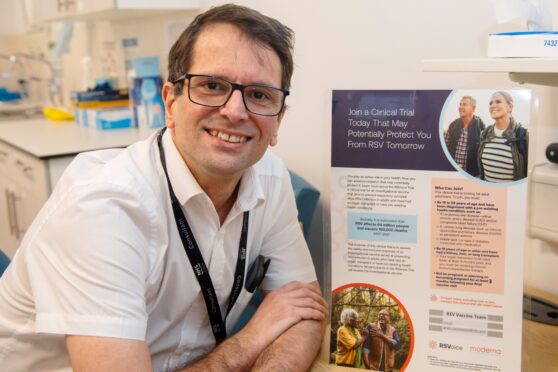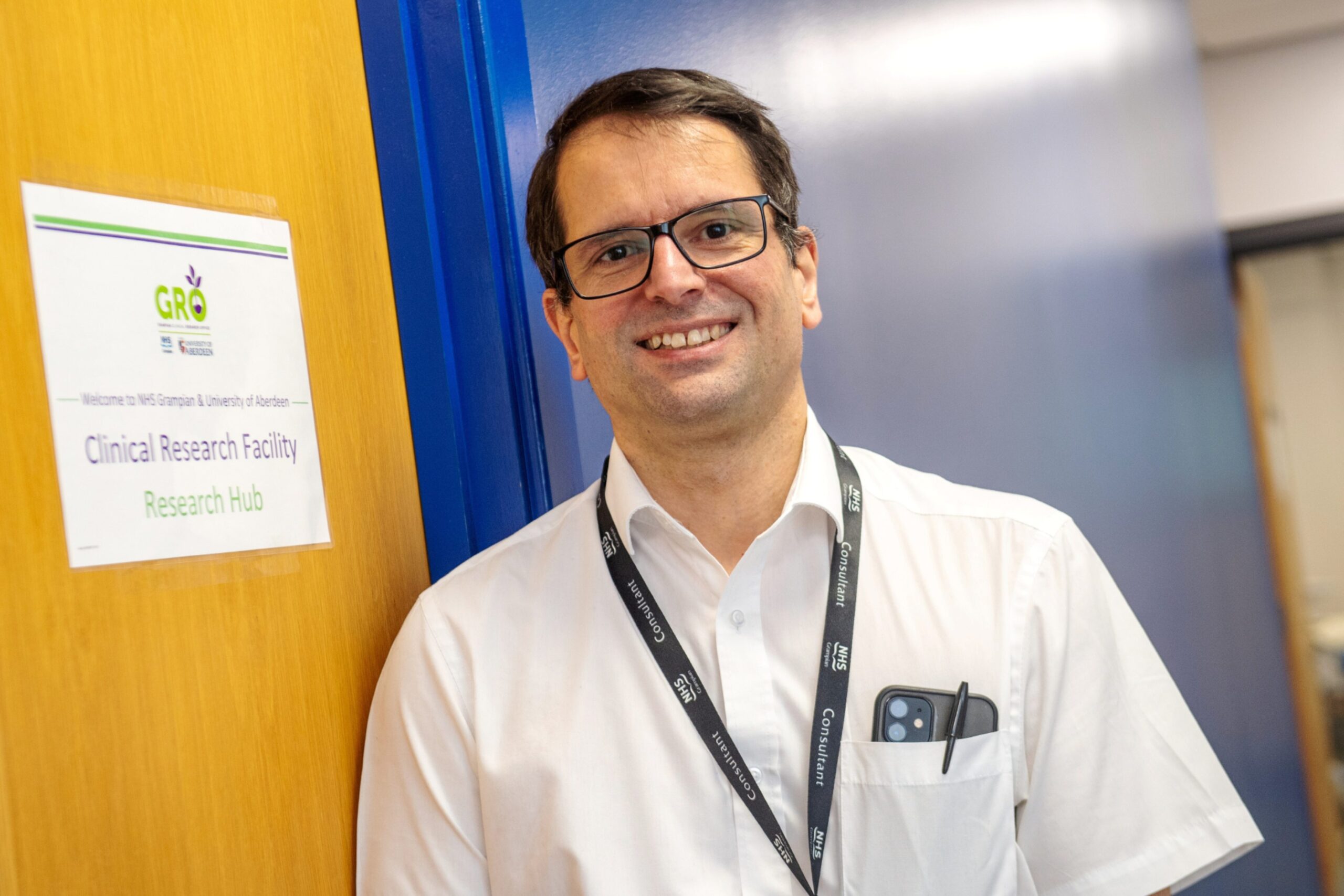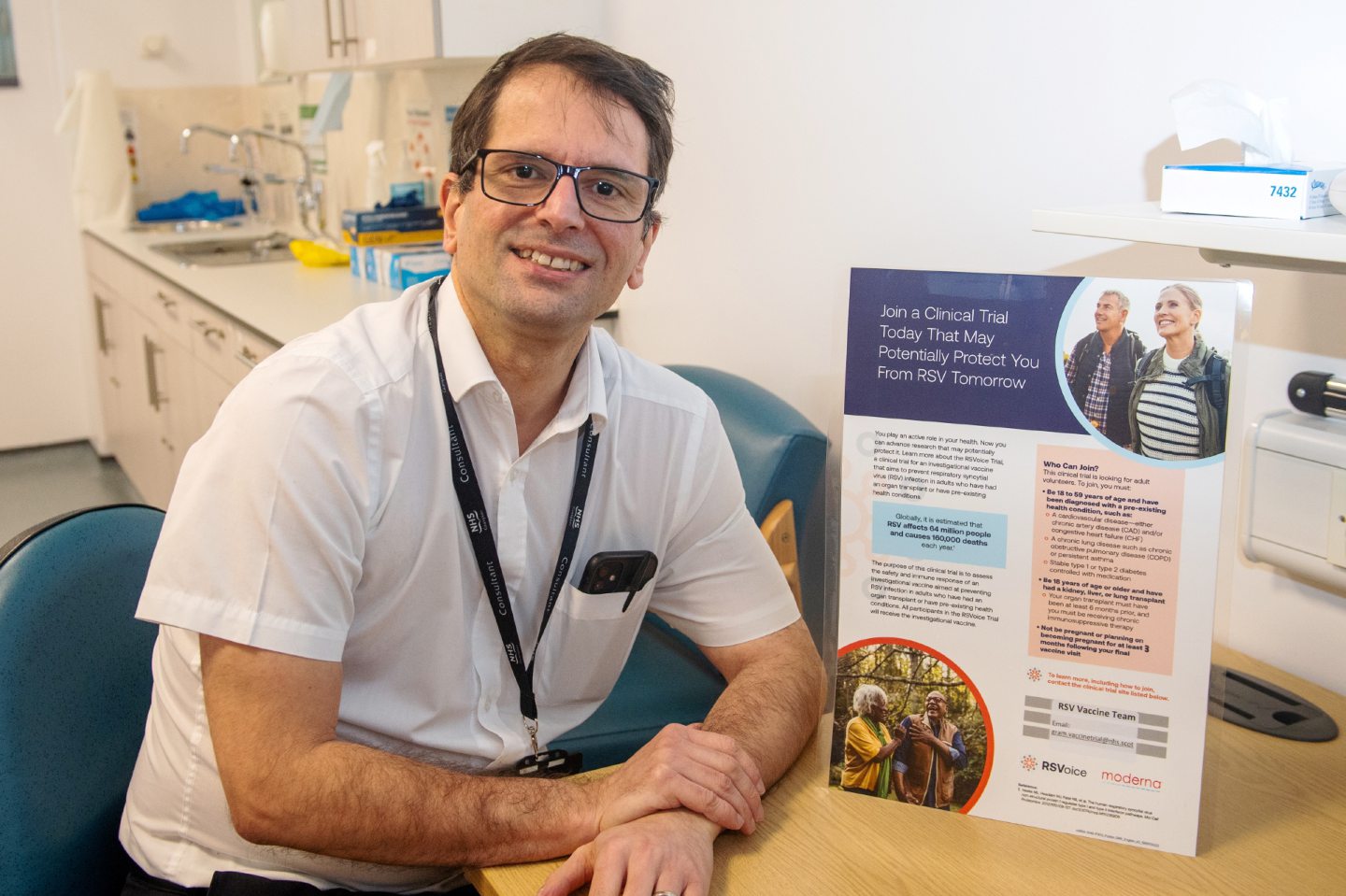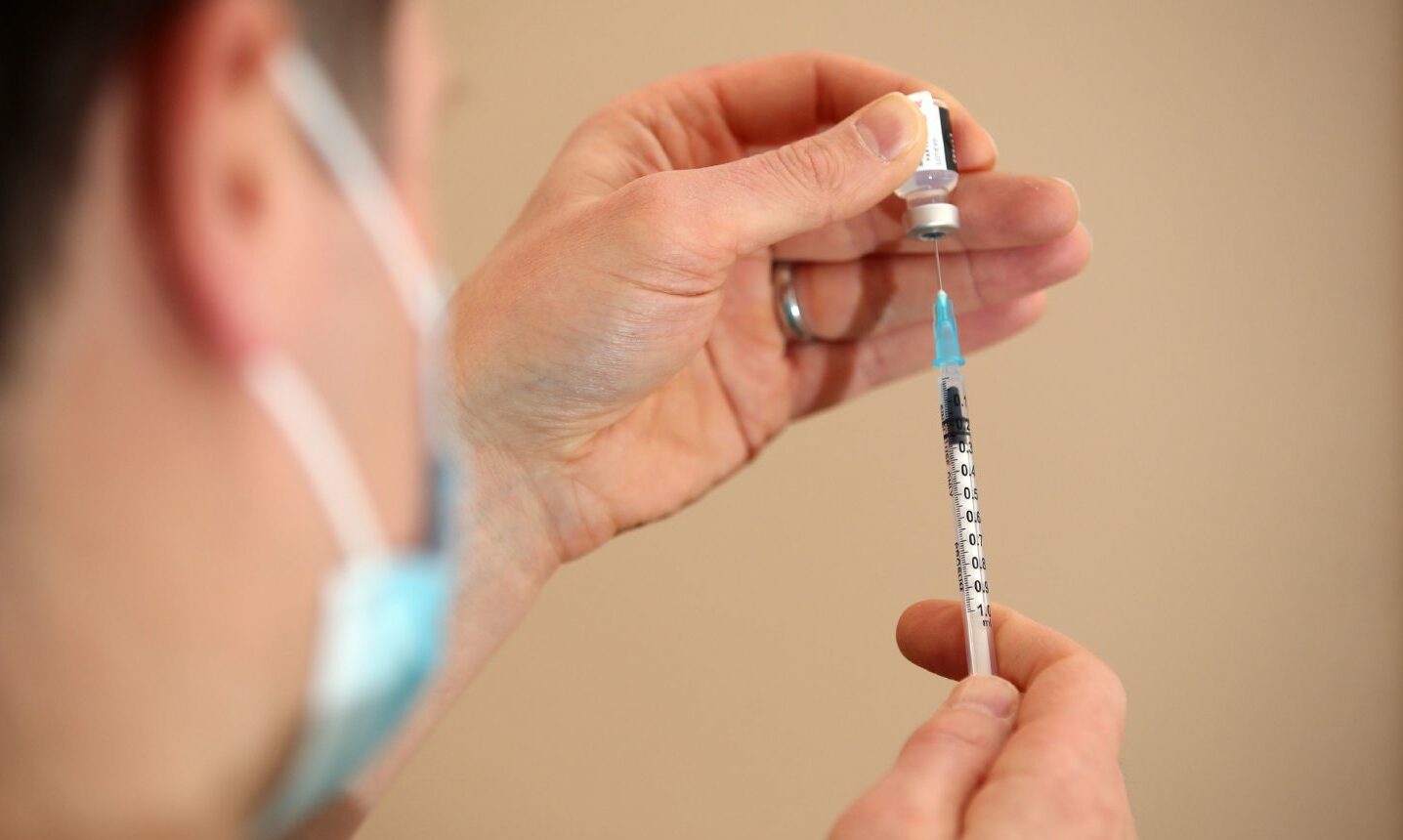It’s an illness which kills thousands of people every year in Britain and leads to tens of thousands of patients ending up in hospital beds.
Yet the chances are that most readers won’t be familiar with the acronym RSV – respiratory syncytial virus – which causes coughs and colds during the winter, and can be fatal to babies, the elderly and those with compromised immune systems.
Those under one year old and the elderly are at the greatest risk. While most RSV infections usually cause mild illness, infants aged less than six months frequently develop bronchiolitis and pneumonia, which may result in hospitalisation.
Children born prematurely, or with underlying chronic lung disease, and the elderly with severe heart conditions can also be badly affected, but NHS Grampian is looking for volunteers to test a new vaccine which, it is hoped, will provide enhanced protection.
NHS Grampian needs volunteers
However, Professor Roy Soiza, a consultant geriatrician at the health body and honorary chairman of the Ageing Clinical & Experimental Research Group at Aberdeen University, has told the Press & Journal he can understand why some people might be wary of using the Moderna-produced vaccine, given the plethora of jabs which were handed out during the Covid pandemic, occasionally with damaging side effects.
So what is the trial about? And why should it be supported by those vulnerable to RSV?
Prof Soiza said: “It is difficult to get accurate figures because not all adults with serious chest infections are tested for RSV. However, there is evidence that there are more than 5,000 deaths a year in the UK (so that is approximately 500 in Scotland).
“In children under five, there are 33,500 hospital admissions every year in the UK due to RSV. In older adults, the precise figure is unknown due to limited testing, but it is widely accepted to be in the thousands of admissions in Scotland.
Vaccine could be breakthrough against RSV
“It causes an upper respiratory tract infection in most people, akin to a bad cold. Unfortunately, it can trigger much more serious infections such as bronchiolitis in very young children and in those with compromised immune systems.
“The inflammation of the lungs can be sufficiently severe to require hospitalisation for oxygen. And, in some cases, this is fatal.
“Successful vaccines against RSV are a relatively new development, so we have the opportunity now to reduce the burden of this disease for the first time.”
In December 2022 – the release was published on the cusp of Christmas – the Government at Westminster announced a 10-year partnership deal with Moderna to develop, manufacture and test vaccines throughout Britain.
This is being promoted as part of a wider drive to transform the UK into a leader in vaccine research, in a bid to save lives, minimise the burden of infectious diseases on the NHS and wider society and protect the country from future pandemics.
Taking steps to tackle viruses
The news has not been welcomed everywhere and misgivings over vaccines exist among a section of the public – a state of affairs which has led to cases of measles being on the increase again in England – but Prof Soiza believes there is an opportunity to take strides forward in tackling viruses and preparing for the next pandemic.
He told me: “Along with our colleagues throughout NHS Scotland, we in Grampian have an important role to play in this drive. We have a Vaccine Trials team within the Grampian Research Office that has already tested or is testing vaccines by Moderna and other major manufacturers against Covid-19 and other illnesses.
“I am pleased we have developed a reputation for excellence in this field thanks to the support of the people in the north-east who volunteer for these trials.
“I envisage a growing number of trials of carefully selected vaccines that will improve our population’s health for many years to come.”
The toll of Covid
It’s understandable that the grim memories of Covid and the months spent in lockdown, with schools and offices closed amid a grievous death toll and the NHS coming close to being overwhelmed, have left a lingering mark on many in society and proved the catalyst for an escalation in mental health issues among youngsters.
The majority in Britain might remain convinced that the extreme policies enforced in 2020 were necessary to fight the infection while vaccines were created and mass-produced, but that doesn’t mean they are sanguine about being asked to continually use such measures without finding out exactly what is being injected into their bodies.
Prof Soiza, who described himself as a “sceptic”, understands these anxieties. But he still believes that science should be at the forefront of tackling serious illnesses and if that means using more vaccines in the future, he considers it a price worth paying.
Safety of vaccine developed to high standard
He said: “The recent pandemic showed how disastrous infectious diseases can be, and how vaccine development can help us mitigate against most of the worst effects.
“However, I am broadly sympathetic to those who feel ‘vaccine fatigue’ and even those with ‘vaccine hesitancy’ who are sceptical about the worth of vaccines.
“As a geriatrician – a specialist in the care of older people- I worry that we sometimes over-prescribe and over-value medications in general.
“It is important we are not dogmatic and look carefully at the evidence – I always do this in my work, whether as a clinician or a researcher and when I am a patient as well.
“However, it is clear that the burden of illness and deaths caused by certain infections, including Covid-19, flu and RSV, is such that vaccination against them for those at high risk of serious infection makes sense.
“The safety and effectiveness of vaccines are developed to an extremely high standard, and the bar for the UK government’s Joint Committe on Vaccination and Immunisation to recommend vaccination for the NHS is also set very high.
“Great care is taken to target the vaccines at those who are most likely to benefit from them. Even as a natural sceptic, I recommend their use.”
How to get involved in vaccine programme
The professor spelled out what the new testing programme would entail and stressed it only involves a small section of the population who are vulnerable to RSV.
He said: “The present study is looking for people, aged 18 to 59, with a history of ischaemic heart disease – which means they have angina or had a previous heart attack – and also people, aged 18 or over, with a kidney, lung or liver transplant.
“They will receive the new Moderna mRNA-1345 vaccine against RSV as one of two different doses. The study aims to prove that it is just as effective against RSV in these patients as in older people, and will help guide public health efforts to minimise deaths and hospitalisations due to this infection.”
There’s no doubt that advances are being made. It will be interesting to monitor the uptake for this new vaccine test.
Anybody wishing to take part should email gram.vaccinetrial@nhs.scot




